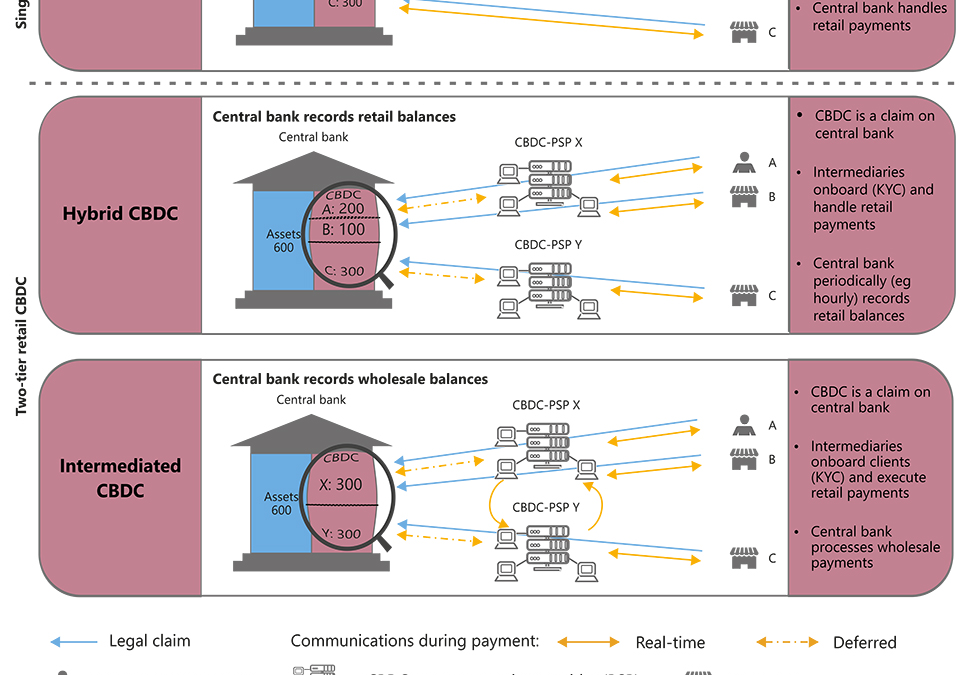Bitcoin (BTC) holders looking to avoid Central Bank Digital Currencies (CBDCs) may have gained a surprise ally — banks.
In his latest blog post, “Pure Evil,” Arthur Hayes, ex-CEO of crypto derivatives platform BitMEX, argued that banks may limit the impact of the CBDC “horror story.”
Hayes: Bitcoiners and banks stand against CBDC “dystopia”
CBDCs are currently in various stages of development worldwide.
Fans of financial sovereignty naturally fear and even despise them, as they imply total government control over everyone’s money and purchasing power — “a full-frontal assault on our ability to have sovereignty over honest transactions between ourselves,” says Hayes.
Among opponents of CBDCs are not only Bitcoiners, however. Sharing the cause will likely be the commercial banks they have sought to oust from power with BTC.
“I believe that the apathy of the majority will allow governments to easily take away our physical cash and replace it with CBDCs, ushering in a utopia (or dystopia) of financial surveillance,” the blog post explains.
“But, we have an unlikely ally that I believe will impede the government’s ability to implement the most effective CBDC architecture for controlling the general populace — and that ally is the domestic commercial banks.”
In implementing a CBDC, a government could either make the central bank the only “node” in the digital network, or use commercial banks as nodes in a less radical overhaul of the financial system. These systems Hayes calls the Direct Model and Wholesale Model, respectively.
“Given that every country that has at least reached the ‘choosing a CBDC model’ stage has opted for the Wholesale Model, it’s clear that no central bank wants to bankrupt their domestic commercial banks,” he reasons.
As such, to “placate” banks to a certain extent but still achieve benefits such as eradicating cash, governments may ultimately be kept in check by the kind of entities known for limiting crypto exchange transactions and banning hodlers’ accounts.
“For politicians who care more for power than profits, this is their chance to completely destroy the influence of Too Big to Fail banks — and yet, they seem to remain politically unable to do so,” Hayes adds.
“Capital controls are coming”
The topic of CBDCs receives extensive attention, even beyond the crypto industry, as they represent a major shift in both money and politics.
Related: CBDCs are no threat to crypto — Binance CEO
In an interview with Cointelegraph last week, Richard Werner — development economist and professor at De Montfort University — described them as a “declaration of war.”
“In other words, the bank regulator is suddenly saying we’re going to compete against the banks now because the banks have no chance. You can’t compete against the regulator,” he said.
Hayes meanwhile flagged Bitcoin as a safe haven still available for those already opposed to any form of zero-cash economy — but not for long.
Buying BTC will become increasingly difficult, or perhaps outright impossible, once CBDCs are implemented.
“This window won’t last forever. Capital controls are coming, and when all money is digital and certain transactions are not allowed, the ability to purchase Bitcoin will quickly vanish,” he warned.
“If any of this doom porn resonates with you and you don’t own at least a very small % of your liquid net worth in Bitcoin, the best day to have bought Bitcoin was yesterday.”
The views and opinions expressed here are solely those of the author and do not necessarily reflect the views of Cointelegraph.com. Every investment and trading move involves risk, you should conduct your own research when making a decision.










